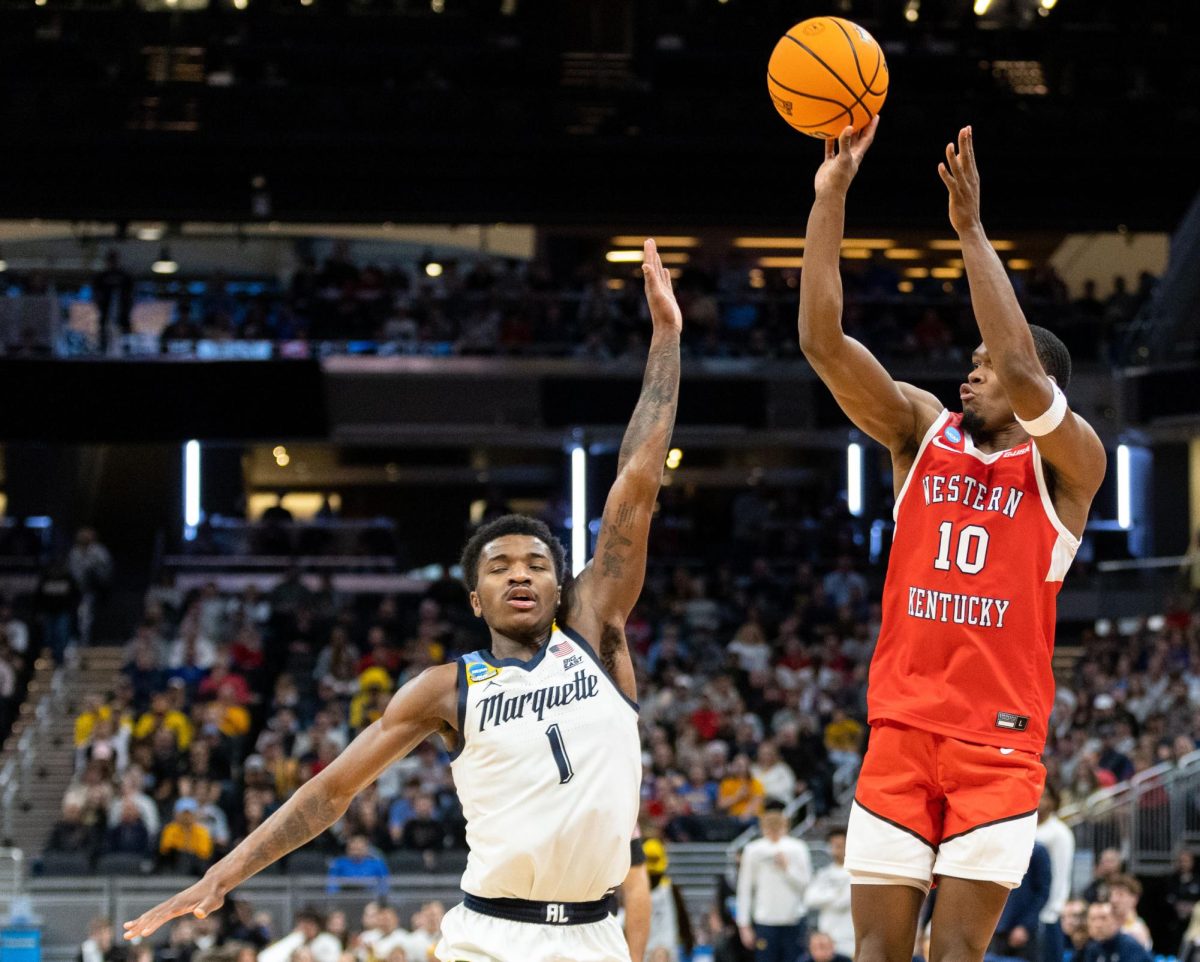Owensboro campus becomes small-scale main campus
May 7, 2015
The Owensboro campus could easily be mistaken as a scaled-down version WKU’s main campus.
The university fight song appears on the walls. In addition to the classrooms, the two-story building is also outfitted with two computer labs, a staff library, a conference room and a university bookstore—all amenities available to those WKU students in Bowling Green.
For students like Jennifer Bowlds, an Owensboro senior studying social work, the differences aren’t significant.
“Just because we’re a regional campus, it doesn’t mean that we’re left out,” she said. “We’re just a smaller aspect of the university.”
The Owensboro campus is not the only collegiate institution in the Owensboro community. Accompanying it are Kentucky Wesleyan College, Brescia University, Daymar College and Owensboro Community and Technical College (OCTC).
Despite the presence of the other universities, Daviess County wanted to provide the foundation for a four-year public university in the community. The county’s contributions led to the construction of the current campus location, which opened in 2010.
“All four of our campuses are a part of WKU,” said Gene Tice, Owensboro campus regional chancellor. “They’re located in a different area, but they’re WKU students.”
Students attending Owensboro campus typically complete their associate degrees before entering WKU as juniors. Several students participate in the joint admissions program offered by nearby community colleges and technical schools.
Hannah King, an academic advisor and recruiter for the campus, said the joint admissions program makes the transition between schools easier.
King’s students come from a wide variety of backgrounds.
“In the past two days, I’ve had a high school junior sit in [her office], and I’ve had someone who is 64 sit in that same chair,” she said.
The top majors at the campus include elementary education, psychology, interdisciplinary studies and systems management, according to King.
“[These majors] are really reflective of this area,” she said. “They’re all majors where students can get a job in this region, as well as any region in the state.”
David Powers, the workforce development coordinator for Owensboro campus, is responsible for helping students on campus prepare for their future careers. His goal is to eventually attach an internship to every program offered at the campus, he said.
“We need to provide these kinds of opportunities to students to help them connect,” Powers said.
In addition to the resume workshops and career-building events offered on the campus, there are also activities that encourage students to get involved in other ways.
In the past month, for example, the campus hosted a Holocaust event that included a display in the library, faculty presentations and a visit from Holocaust survivor Sonja DuBois.
On-campus activities are scheduled around students’ schedules with the awareness that some times are simply not an option for certain students, King said.
The locality of the Owensboro campus allows for students who are bound to the region to continue their studies without making the drive to Bowling Green. That accessibility is what DeSha Bowles, a health sciences senior from Sacramento, said she greatly appreciates.
“It’s very important for colleges to have this sort of outreach for people who don’t live close enough to campus or don’t want to live on campus,” Bowles said. “It allows them to be a part of the university.”











![Students cheer for Senator at Large Jaden Marshall after being announced as the Intercultural Student Engagement Center Senator for the 24th Senate on Wednesday, April 17 in the Senate Chamber in DSU. Ive done everything in my power, Ive said it 100 times, to be for the students, Marshall said. So, not only to win, but to hear that reaction for me by the other students is just something that shows people actually care about me [and] really support me.](https://wkuherald.com/wp-content/uploads/2024/04/jadenmarshall-1200x844.jpg)




![Students cheer for Senator at Large Jaden Marshall after being announced as the Intercultural Student Engagement Center Senator for the 24th Senate on Wednesday, April 17 in the Senate Chamber in DSU. Ive done everything in my power, Ive said it 100 times, to be for the students, Marshall said. So, not only to win, but to hear that reaction for me by the other students is just something that shows people actually care about me [and] really support me.](https://wkuherald.com/wp-content/uploads/2024/04/jadenmarshall-600x422.jpg)








